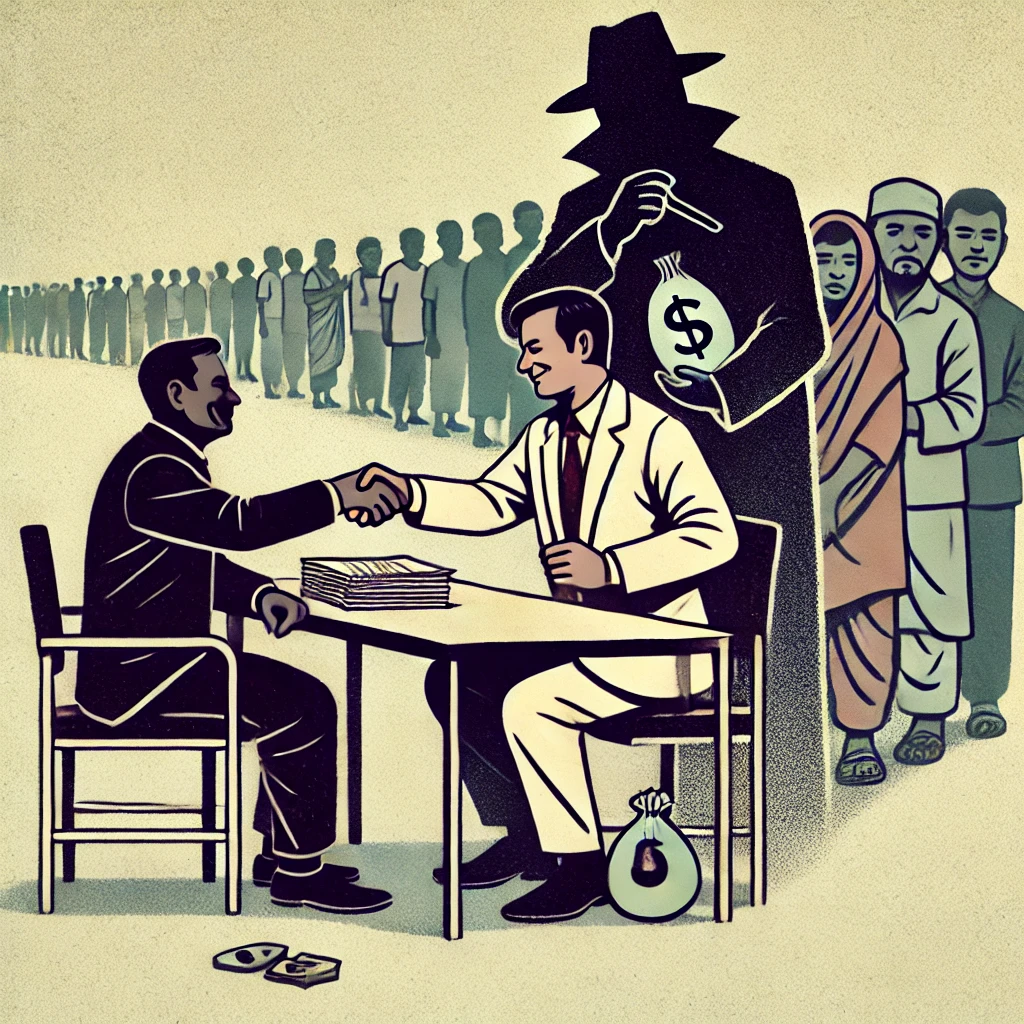
The Bangladesh Nationalist Party (BNP), once a dominant political force, has increasingly become a significant threat to democracy in Bangladesh. With its history of political violence, authoritarian tendencies, and collaboration with external forces for personal gain, BNP’s activities reflect striking similarities with fascist movements across history. At the grassroots level, BNP’s tactics are reminiscent of extreme right-wing groups that prioritize power over democratic principles. Moreover, their political maneuvering with the Indian government and Prime Minister Sheikh Hasina’s administration raises serious concerns about their commitment to Bangladesh’s sovereignty and democratic stability.
BNP’s Fascist Parallels
Fascism is characterized by authoritarianism, political violence, and the suppression of dissent—traits that BNP has exhibited throughout its existence. In the present political landscape of Bangladesh, BNP’s actions align with several fascist tendencies:
- Glorification of Authoritarian Leadership: BNP continues to promote the image of Khaleda Zia and her son Tarique Rahman as absolute leaders, suppressing internal democratic reforms. Much like fascist parties, it relies on dynastic rule rather than democratic leadership changes. For instance, despite Khaleda Zia’s prolonged absence from active politics due to her health condition, BNP refuses to decentralize its leadership, maintaining an autocratic grip on party decisions.
- Inciting Political Violence: BNP has repeatedly resorted to political violence to destabilize the government. Their use of arson attacks, targeted killings, and vandalism to intimidate the public and the ruling party mirrors the terror tactics of historical fascist movements. A clear example is the violent protests during the 2014 and 2018 general elections, where BNP supporters burned vehicles, attacked law enforcement, and orchestrated nationwide strikes to undermine the democratic process.
- Disinformation and Propaganda: The party frequently engages in misinformation campaigns to distort facts and mislead the public. This includes spreading false narratives against democratic institutions and the judiciary, similar to how fascist regimes manipulate public opinion to consolidate power. For example, BNP actively uses social media to spread fake news about election fraud and government corruption, often relying on unverified sources to create panic among voters.
- Undermining Electoral Processes: BNP has a long history of attempting to manipulate elections, whether through boycotts, rigging attempts, or calls for military intervention. These actions are intended to delegitimize the democratic process when results do not favor them. In 1996, BNP attempted to stay in power through a fraudulent election, leading to mass protests that forced a re-election. More recently, their refusal to participate in local elections while simultaneously claiming electoral corruption is an effort to create political instability.
BNP’s Links with India and Sheikh Hasina
Despite its nationalist rhetoric, BNP has historically maintained suspicious ties with the Indian government and Sheikh Hasina’s administration, raising concerns about its true allegiance. Several activities illustrate this connection:
- Secret Meetings with Indian Officials: BNP leaders have been known to engage in undisclosed meetings with Indian intelligence and political figures. These interactions suggest covert negotiations that contradict BNP’s anti-India stance in public forums. For instance, BNP officials reportedly met with Indian representatives in 2018 to seek support in toppling the ruling Awami League, despite their public claims of opposing Indian influence in Bangladesh.
- Tarique Rahman’s Safe Haven in London: While publicly opposing Sheikh Hasina’s governance, BNP’s acting chairman Tarique Rahman continues to operate freely in the UK under circumstances that suggest diplomatic backing. His movements and financial transactions remain unchallenged, leading to speculation about tacit understandings between BNP, India, and Hasina’s government. The fact that he has avoided extradition despite being convicted in Bangladesh raises questions about the external protection he enjoys.
- Complicity in Undermining National Sovereignty: BNP’s reluctance to strongly oppose agreements detrimental to Bangladesh’s economic and political independence indicates a hidden alignment with external forces, including India. Their selective outrage against certain policies while remaining silent on others suggests a deeper level of coordination with foreign powers. For example, BNP has remained unusually quiet on controversial trade deals with India while aggressively criticizing domestic policies that benefit Bangladesh’s economy.
BNP’s current political trajectory poses a significant threat to democracy in Bangladesh. The party’s alignment with fascist principles, its relentless pursuit of power through violence and misinformation, and its dubious connections with India and Sheikh Hasina’s administration highlight its dangerous role in the nation’s political landscape. If left unchecked, BNP’s actions could further erode democratic institutions and jeopardize Bangladesh’s sovereignty, making it imperative for citizens to remain vigilant and resist authoritarian encroachments masked as political opposition.
4b42om
m2upcq
ik1iaq